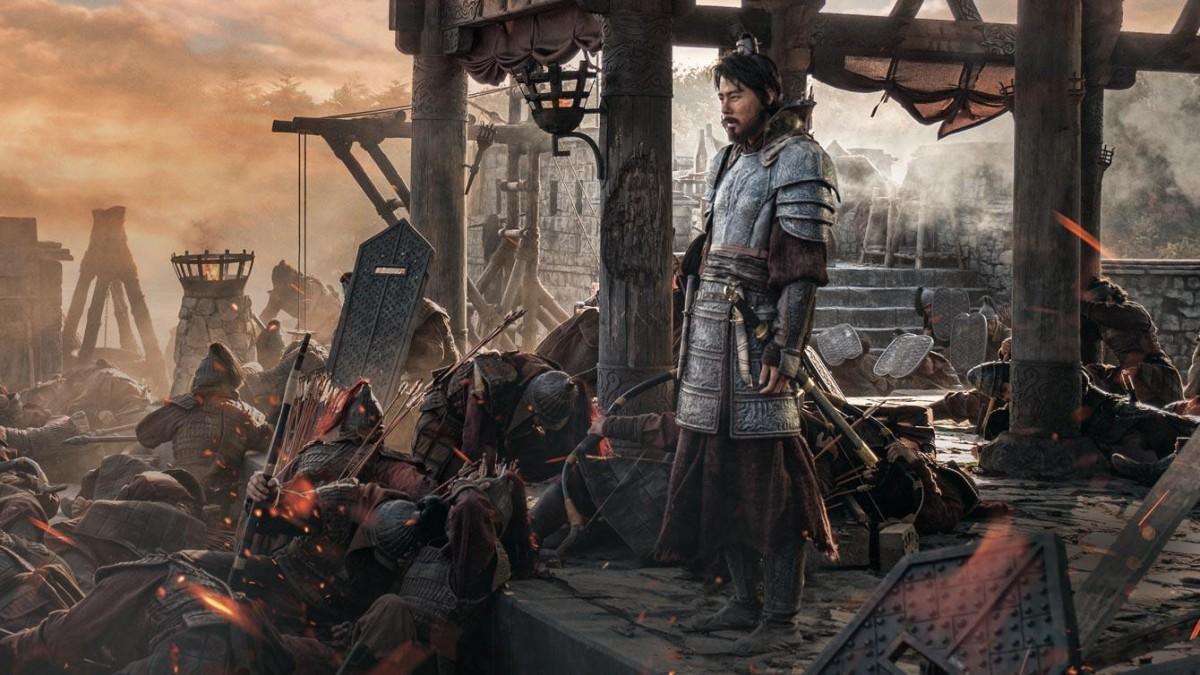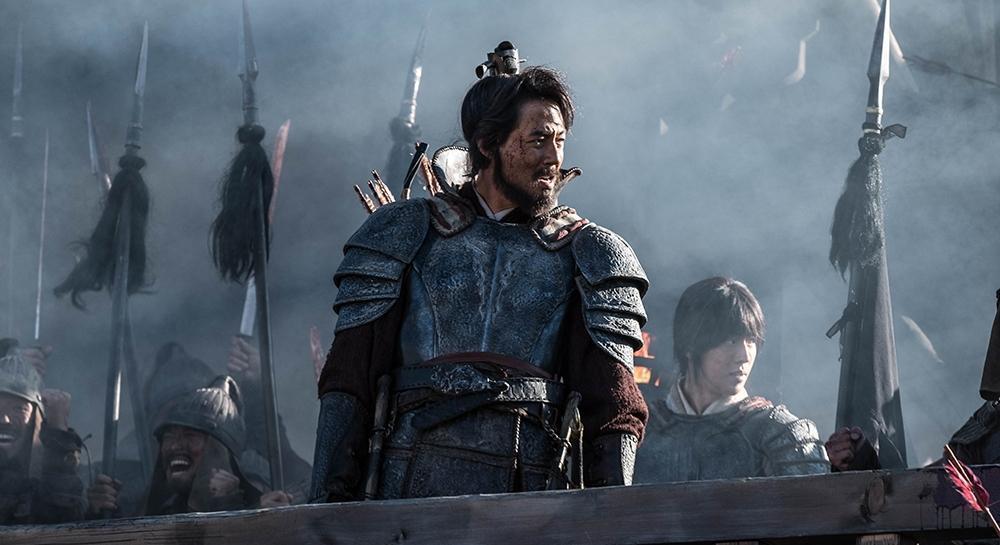
Kim Kwang-Sik’s third film to date, The Great Battle, may make the film sound like another generic period war flick. That said, if the genre suits you and you’re in for the long haul, you’ll likely get the most out of what Kim offers in this wartorn over two-hour epic riddled with intrigue, conflict and sweeping action.
Actor Zo In-Sung takes the mantle for his second foray into feature territory since his drama stint with SBS and tVn between 2013 and 2016 after military service. Joined by award-winning drama star Nam Joo-Hyuk in his debut feature role, Kim’s The Great Battle is an epic, consequential deliniation of the often waning nuances of critical decisions made during times of war, testing character with tried and true intentions mired with a seed of treachery opposite self-reflection.
The film opens as a key battle commences amidst an 88-day war between the Goguryeo army and the Tang imperial forces, resulting in defeat for the former thusfar. Bittered and looking for retribution, General Yeon (Yu Oh-Seong) deploys his lieutenant commander, Sa-Mul (Nam Joo-Hyuk), to engage the last standing fortress of Ansi where his own home is and assassinate General Yang (Zo In-Sung) for abandoning him earlier on. Sa-Mul is soon caught in an unforeseen moment and seized by Yang and his men, although he remains so under the guise of an escapee from Tang forces.
Tempered in his approach, Yang seemingly takes lenience with Sa-Mul in his impression of him while his closest man, Choo (Bae Sung-Woo), assumes a more quiet vigilance in case Sa-Mul tries something questionable. Overtime, Sa-Mul’s own observation of Yang’s exemplary leadership and resolve with his people and the men he commands illustrates a dissonance of impressions between what he’s seen first hand and Yeon’s own anger and influence in wake of how the rift between the two leaders came to be in the first place.
Meanwhile, the Tang emperor, Taizong (Park Sung-Woong), having already vastly pillaged and plundered numerous fortresses and armies now has his eyes set on Ansi. Days of war ensue with men dying in spades on both sides as the fight commences with head-on attrition and guerilla warfare, measuring strategy for strategy with every wave while Taizong and Yang both keep close to their tactics with steady timing and patience. Circumstances change when Yang’s former lover-turned-medium, Shi-Mi (Jung Eun-Chae), suddenly turns up at Ansi Fortress, ensuing a decisive chain of events that ups the stakes in lieu of a definitive large scale finale of wits and ensuring will that will not only decide the victor in more ways than several.
Folks who’ve seen Han Jae-Rim’s The King will get something of a kick out of Kim’s reunion of stars including Zo, Park and Jung. Nam’s casting grants a worthwhile lead to the cadre of film talent on hand in the role of Sa-Mul, fueling away with the uncertainty of whether or not he will show his hand. Strong performances led by Zo’s portrayal of Yang are especially of note as the movie unfolds its heightened development throughout.
Park Byung-Eun and Oh Dae-Wan make their entry as two incorrigible lieutenants Poong and Hwal-Bo, providing relief along the way as their characters evolve from their continued odds. Actress Seol Hyun makes her entrance as Yang’s sister in a startling, upbeat reveal that complicates things a little more as far as family goes.
The action is delivered with the often rigorous handy work that often puts the camera right smack in the center of the chaos. The first seven minutes of the movie alone hint amply at the kind of violence and gore from which archaic methods are caused; soldiers are either decapitated, impaled at length, dragged by their own horses or seperated from important limbs, and one key character brutally loses an eye in a shimmering, climatic long-distance arrow shot from a legendary bow previously fired by a Goguryeo general once upon a time and only never to be shot again due to the near-immalleability of its string.
The sweeping battles also invoke an impressive array of fight scenery for several of our key characters. Dutch angles tilt with dependable motion that provides these shining moments with the kind of allure Kim goes for, making these scenes what you might consider the cherry-on-top for these supporting characters next to Zo and Nam. The drama and dialogue juxtaposed to these characters are similar to what cinephiles may have seen before with respect to the kind of cinematic experience these films bring – that is, in terms of drawing emotively on tragedy and sympathy. At the same time however, you’re never left exasperated by it in the course of all the edge-of-your-seat moments and imperative curiousity this film arouses when you’re busy rooting for the good guys to win.
I must also say that it’s terrific to see Yu Oh-Seong is still around. The first film I saw him in was the sometime in the early two-thousandsies with Kim Sung-Su’s gritty 1997 urban coming-of-age crime drama, Beat. It’s one of my most favorite films to date, riddled with flawed, young characters swept into a hurricane of their own choices brought upon them by friendship, toxic romance and tested brotherhood with Yu’s role climbing the mob hierarchy. Yu’s role in The Great Battle is small but significant with respect to the narrative and I never not enjoy seeing him on screen.
The English title doesn’t make this film sound like much, but that’s the fault of those doing the marketing. That aside, don’t be jaded or fooled into passing this one up when you look up what to watch one day at the theater or at home. Purchase or rental, this one’s worth a watch.
Visit Well Go USA for more info.

